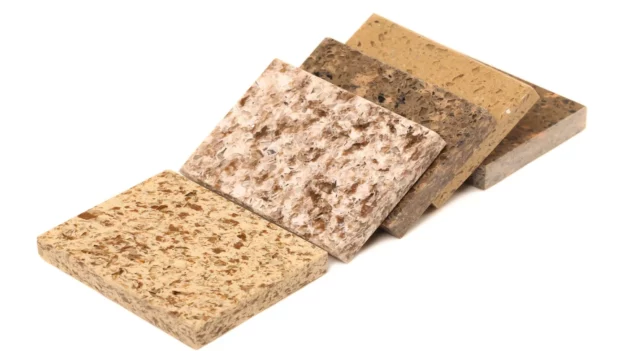Stone Cycling, a pioneering company in sustainable solutions, has launched “BioBasedTiles”, innovative ecological tiles made from agricultural waste such as rice, wheat and barley hulls. These not only offer an alternative to cement, known for its high greenhouse gas emissions, but also promise to transform the construction industry with its environmental commitment.
These ecological tiles are characterized by being completely biodegradable and compostable , allowing them, at the end of their useful life cycle, to be reintegrated into the environment without leaving harmful residues. In addition, being 20% lighter than traditional tiles, they contribute to reducing the structural load in the buildings where they are installed .
Ecological tiles suitable for construction
One of the highlights of BioBasedTiles is their curing process, which is completed in just 72 hours at room temperature , eliminating the need for high-energy ovens. This feature saves energy and makes them three times more resistant than conventional concrete bricks, suitable for both indoors and outdoors.
In addition, these biological tiles offer excellent acoustic qualities, making them an ideal option to improve noise insulation in any building . This advance is a step forward in reducing pollution and also represents a significant leap in the fight against the negative environmental effects accumulated over the last two centuries.
The manufacturing process of BioBasedTiles
The manufacturing process of these tiles begins with the crushing of construction waste until it becomes recycled sand. This sand is then mixed with a matrix of non-pathogenic fungi and bacteria, which act as a natural binder, without generating waste or harmful emissions . Finally, the mixture is poured into molds to form the tiles, completing a completely sustainable production cycle.
As the world seeks solutions to counteract climate change, the development of building materials such as BioBasedTiles is crucial. Integrating circular economy practices, these advances offer green alternatives for new projects and provide options for the sustainable renovation of existing buildings, thus expanding their positive impact beyond new construction towards the rehabilitation and improvement of already established infrastructure.
Follow us on social networks and don’t miss any of our publications!
Inspenet.com YouTube LinkedIn Facebook Instagram X
Source: canal26.com
Photo: shutterstock

